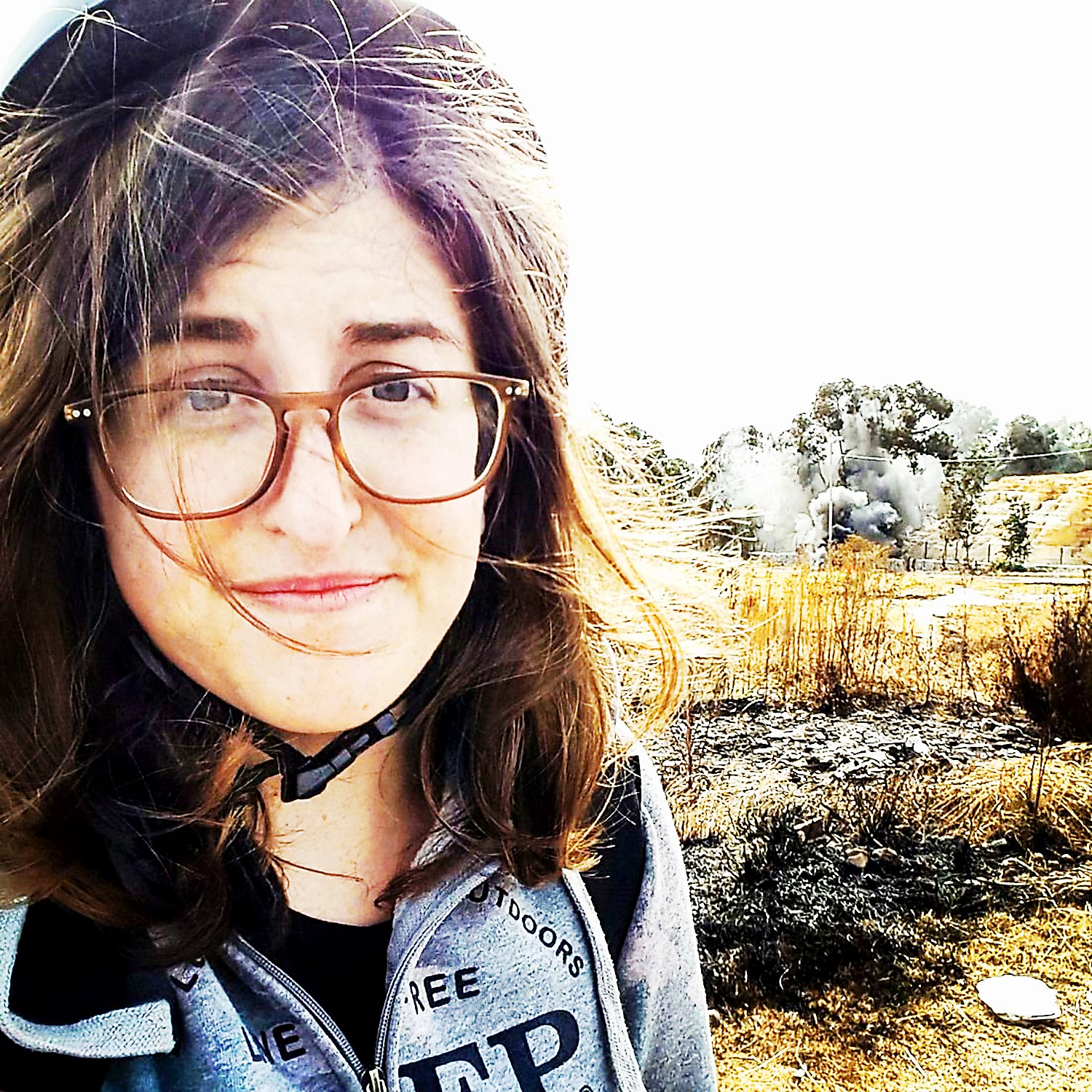
Voices

Objective journalist a lone soldier in anti-Israel media war
ILANIT CHERNICK
It’s no surprise that the world is misinformed about the situation in Israel when international news agencies are distorting the facts. It’s no surprise that when three people are stabbed to death in a terrorist attack, headlines across the BBC, Reuters, AP, and AFP state that a Palestinian – not a terrorist – was shot, failing countless times to mention the context.
Journalists and news reports will mention the three dead Israeli citizens in the second or third paragraph. I’ve witnessed how the victim of the attack is mentioned only in one short line at the end of the report, and once not mentioned at all.
How about the recent barrage of rockets in Israel? When hundreds of projectiles were raining down in the south of the country, hardly any of the international press wrote a word about the tens of thousands of people who were cowering in bomb shelters, who didn’t sleep for days as they worried about the safety of their families.
Only when the Israel Defence Forces and the Israel Air Force retaliated did several news outlets report the escalation in the conflict. Of course, Israel was blamed. In several news reports, hardly anything was written about the hundreds of rockets that pounded the south, making it seem that Israel was the aggressor. Not to mention the thousands of acres destroyed in the south by kite and balloon terror, which of course has hardly been reported. When it has been, it is almost lauded as an act of resistance.
I’m not saying that Israel is perfect. It has its flaws and its problems just like every other country in the world. Sometimes it is in the wrong, but that “in the wrong” is always overamplified. There’ll be a civil war where nerve gas is used, and not a word of it is reported. But when something happens in Israel, the world and many news agencies are quick to hone in on the twisted and warped narrative of Israel that has developed over the past decade or so.
Maybe it’s because the global media views the Palestinians as the “underdog” that it interprets the security barrier which has stopped hundreds or even thousands of terrorist attacks as an “apartheid wall”. This is thanks to “concerns” raised by the Boycott Divestment Sanctions (BDS) organisation. Perhaps such BDS tactics have caused lies and distorted truths to become the so-called “reality”, making the anti-Israel narrative the gospel. If you don’t report in a way that shuns Israel, it’s no longer newsworthy in the international arena.
Sometimes, I think that this new normal has become so ingrained, news outlets no longer realise that what they are publishing about Israel is anything but objective.
Whatever the reason, the real story is failing to be told. And we, the journalists, are to blame. Even those, like me, who work tirelessly to get the truth out there have been failing. We land up allowing our news agencies or news outlets to continue to publish blatant untruths and biases against the tiny state.
The fact that media watchdogs have to exist to stop the lies and hate that the media is spreading is a sad tale in itself.
A month ago, I was offered the opportunity to change that bias, to be a part of something that focuses on the facts, and to the best of its ability, be objective. I joined a news agency called TPS (Tazpit Press Service) that works tirelessly to get the facts about Israel out into the world.
It’s not our job to form the opinion of our readers. It’s our job to report the situation on the ground fairly. It’s our job to disseminate the facts – on both sides – and from there have readers come to their own conclusion. TPS is trying to bring back objectivity when it comes to reporting about Israel. And it’s this that attracted me. It’s not about a public-relations war – winning or losing.
For me, as a reporter, it’s about the news, plain and simple. It’s about breaking it down and reporting the facts with the integrity that was once at the root of journalism so my readers can decide for themselves.
It’s about ending the distortion created by social media – especially in the Israel equation. The facts have to be laid bare, and both sides of the story have to be told – equally. It’s about doing so with balance.
When an Israeli is killed in a rocket attack, when a Palestinian is killed in an air-force strike, when terrorists are launching hundreds of incendiary kites, balloons, and devices, there has to be balance. When rockets are raining down on the south, when Palestinians are injured during riots, there has to be balance, understanding, and context to each and every piece of news.
It’s an arduous task. Some may say it’s too idealistic. But I am ready for the challenge. And if – and only if – I don’t succeed, at least I know that I did everything in my power to change the world of news for the better. That’s my comfort and that’s my motivation.




